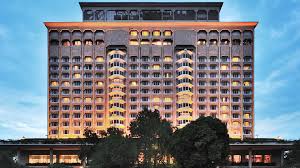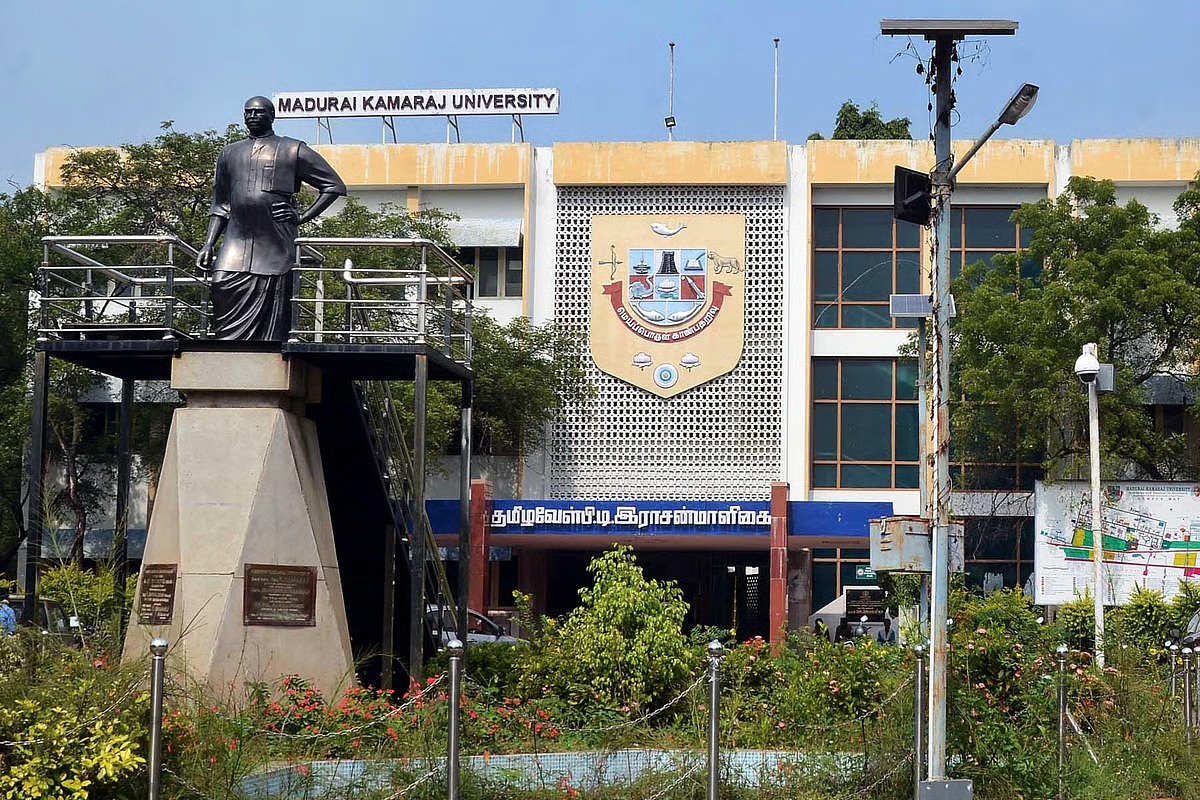Rakesh Kumar Garg, J.@mdashThis is a classic case of wastage of precious time of Court and abuse of process of law by unscrupulous litigants, who are fighting frivolous litigation without complying with the provisions of law.
2. In the present case, Mohinder Singh-Respondent had sought a mandatory injunction seeking the relief as mentioned in the headnote of the suit against the Appellant. The trial Court vide its judgment and decree dated 10.4.2006 dismissed the suit. However, on an appeal filed before the lower appellate court, which was accepted, decree was passed in favour of the Plaintiff- Respondent in the following terms:
The suit of the Plaintiff for mandatory injunction is ordered to be decreed and the Defendant is directed to remove the 9" wide and 6''-6" height wall unauthorisedly raised on the first floor or the wall in dispute ABCD, within a period of three months from this order and the appeal is allowed with costs.
3. The present appeal was filed by the Defendant- Appellant before this Court challenging the aforesaid judgment and decree of the lower appellate court. This Court issued notice of motion vide order dated 7.12.2006 and also directed the parties to maintain status quo with regard to the suit property.
4. On 16.2.2009, learned Counsel appearing on behalf of the respective parties, had agreed and stated before this Court that the matter can be resolved through the process of mediation and in this view of the matter, the case was referred to the Mediation and Conciliation Centre of this Court.
5. On 19.3.2009, no one was present before the Mediation Centre. On 22.4.2010, it was reported that the Appellant had died and his L Rs are to be brought on record and for the aforesaid reason, the case was sent back to this Court. The L Rs were brought on record vide order dated 18.5.2009.
6. On 18.9.2009, counsel for the Appellant had stated before this Court that the matter was sent back from the Mediation Centre only for the reason that Rachhpal Singh-Appellant had died and his L Rs were to be brought on record and therefore, the matter be sent back to the mediation Centre as it was a fit case where mediation can be resorted to. The aforesaid stand taken by the learned Counsel for the Appellant was not disputed by the learned Counsel for the Respondent. The parties were again directed to be present before the Mediation Centre on 21.10.2009.
7. Now vide report dated 27.7.2010, the Mediator has reported to this Court that the mediation had not taken place between the parties as in spite of many opportunities given to the parties to appear before the Mediation Centre, they did not appear.
8. Noticing the aforesaid facts, this Court vide order dated 13.9.2010 observed that both the parties were wasting the precious time of the Court by getting unnecessary adjournments and in fact had delayed the proceedings and to discourage such kind of frivolous stands being taken by the respective parties, costs of Rs. 10,000/- each, on the parties were imposed and the parties were directed to deposit the costs before 6.10.2010 with the Punjab State Legal Services Authority.
9. On 6.10.2010, it was stated before this Court for the first time that the parties to the litigation are Non Resident Indians and are not in the country, and, therefore, one more opportunity be given to them to comply with the order dated 13.9.2010. On their request, the case was adjourned for today and keeping in view the conduct of the parties, who are Non Resident Indians, provisions of Order 41 Rule 10 CPC which are mandatory in nature were invoked and the parties were directed to deposit a sum of Rs. 1 lac each as security for the costs of this appeal. The parties were further directed to comply with the order.
10. Today, learned Counsel appearing on behalf of the Appellants has stated before this Court that he has instructions to state that the Appellants are unable to comply with the orders dated 13.9.2010 and 6.10.2010 passed by this Court.
11. On the other hand, Shri Sanjiv Pandit, learned Counsel appearing on behalf of the Respondent has pleaded no instructions.
12. From the aforesaid facts as narrated above, the malafide conduct of the parties is writ at large. They have not only wasted the precious time of the Court but have abused the process of law. Neither the costs imposed vide order dated 13.9.2010 nor the security as directed by this Court vide order dated 6.10.2010 have been furnished. Thus the parties have failed to comply with the orders passed by this Court willfully. It may be useful to refer to the provisions of Order 41 Rule 10 at this stage.
13. Order 41 Rule 10 of the CPC reads as under:
10. Appellate Court may require Appellant to furnish security for costs.- (1) The Appellate Court may, in its discretion, either before the Respondent is called upon to appear and answer or afterwards on the application of the Respondent, demand from the Appellant security for the costs of the appeal, or of the original suit, or of both:
Where Appellant resides out of India. - Provided that the Court shall demand such security in all cases in which the Appellant is residing out of India, and is not possessed of any sufficient immovable property within India other than the property (if any) to which the appeal relates.
(2) Where such security is not furnished within such time as the Court orders, the Court shall reject the appeal.
14. It is also appropriate to refer to the observations of Hon''ble the Supreme Court made in Salem Advocate Bar Association v. Union of India 2005 (3) R.C.R 530, which reads as follows:
Judicial notice can be taken of the fact that many unscrupulous parties take advantage of the fact that either the costs are not awarded or nominal costs are awarded against the unsuccessful party. Unfortunately, it has become a practice to direct parties to bear their own costs. In a large number of cases, such an order is passed despite Section 35(2) of the Code: Such a practice also encourages the filing of frivolous suits. It also leads to the taking up of frivolous defences. Further, wherever costs are awarded, ordinarily the same are not realistic and are nominal. When Section 35(2) provides for cost to follow the event, it is implicit that the costs have to be those which are reasonably incurred by a successful party except in those cases where the court in its discretion may direct otherwise by recording reasons therefor. The costs have to be actual reasonable costs including the cost of the time spent by the successful party, the transportation and lodging, if any, or any other incidental costs besides the payment of the court fee, lawyer''s fee, typing and other costs in relation to the litigation. It is for the High Courts to examine these aspects and wherever necessary make requisite rules, regulations or practice direction so as to provide appropriate guidelines for the subordinate courts to follow.
15. Thus, it has been noticed in the aforesaid judgment that the costs are imposed so that the same:
(a) should act as a deterrent to vexatious, frivolous and speculative litigations or defences and the spectre of being made liable to pay actual costs should be such, as to make every litigant think twice before putting forth a vexatious, frivolous or speculative claim or defence.
(b) costs should ensure that the provisions of the Code, Evidence Act and other laws governing procedure are scrupulously and strictly complied with and that parties do not adopt delaying tactics or mislead the court.
16. Hon''ble the Supreme Court in the case of Vinod Seth v. Devinder Bajaj and Anr. 2010 (3) R.C.R. 813 observed as under:
26. The provision relating to compensatory costs (Section 35A of the Code) in respect of false or vexatious claims or defences has become virtually infructuous and ineffective, on account of inflation. Under the said section, award of compensatory costs in false and vexatious litigation, is subject to a ceiling of Rs. 3,000/-. This requires a realistic revision keeping in view, the observations in Salem Advocates Bar Association (supra). Section 35B providing for costs for causing delay is seldom invoked. It should be regularly employed, to reduce delay.
27. The lack of appropriate provisions relating to costs has resulted in a steady increase in malicious, vexatious, false, frivolous and speculative suits, apart from rendering Section 89 of the Code ineffective. Any attempt to reduce the pendency or encourage alternative dispute resolution processes or to streaming the civil justice system will fail in the absence of appropriate provisions relating to costs. There is therefore an urgent need for the legislature and the Law Commission of India to re-visit the provisions relating to costs and compensatory costs contained in Section 35 and 35A of the Code.
17. The Hon''ble Supreme Court in State of Uttaranchal v. Balwant Singh Chaufal and Ors. 2010 (1) R.C.R. 842, has held that the Court should also ensure that the petitions filed for extraneous and ulterior motives must be discouraged by imposing exemplary costs or by adopting similar novel methods to curb frivolous petitions and the petitions filed for extraneous considerations.
18. A Division Bench of this Court in C.W.P. No. 18346 of 2005 decided on 20.5.2009 dismissed a review petition and imposed costs of Rs. 1,00,000/- while observing that no one has the right to waste Court time.
19. Admittedly, the Appellants are Non Resident Indians also have failed to comply with the aforesaid provisions and in view of Order 41 Rule 10(2), this appeal is liable to be rejected. Consequently, this appeal is dismissed with costs. The costs are assessed to be Rs. 1 lac.
20. From the discussion as made in the foregoing paragraphs of this judgment, action of both the parties, which is malacious, vexatious, false and frivolous, has resulted into delay in disposing of the instant appeal apart from rendering Section 89 of the Code ineffective.
21. In this view of the matter, it is a fit case where even the Respondents are liable to be burdened with costs, which are assessed at Rs. 1 lac.
22. The parties are directed to deposit the costs within one month from today with the Punjab State Legal Services Authority. In case the costs are not deposited by the parties, the Punjab State Legal Services Authority shall be entitled to recover the aforesaid amount of costs from born the parties as arrears of land revenue. Till the costs are recovered, the same shall be having an effect of first charge on the property in dispute.
23. Let a copy of this judgment be sent to the. Punjab State Legal Services Authority for compliance of the order.

